As part of Delineo's aim of 'Known Marketing', where our clients can get a full understanding of what the outcomes of their marketing spend are, we have been looking at measuring Social Media in more effective and interesting ways for a while now. Simultaneously, this has been something that a working group from the IPA have been looking at for over a year, and thus in a timely reflection of our own aims, the IPA have developed a course to explain the results of their extensive study.
So on a cold winters morning in February, we (Tom Mason, Head of Social Media and Harry Sharman, Head of Planning) travelled down to London, to be amongst the first in the country to receive the learning from this year long study, and be on the cutting-edge of social media measurement innovation (and yes, there really is such an 'edge'!).
Having wrestled with the problem for a while that 'likes' (or any other usual social metrics - followers, retweets, etc) do not necessarily mean 'sales', our bar for being impressed by this course was fairly high. Luckily for us, for the most part the course delivered. With a general cry (in a voice not dissimilar to the opening credits from the 'Six Million Dollar Man') 'We should expect more from social measurement. We can be better. We will be better' - we were inspired by the enthusiasm and optimism behind the courses' delivery.
Given to a room of around 30 social enthusiasts, mainly social media managers and media types, with a few Planners thrown in, there was a distinct 'buzz' that we will be able to finally 'show our value'.
The day long course was mainly a lecture style format on the fundamentals of research, when applied to Social. For those familiar with 'Research 101' there were few surprises with basics such as - Correlation does not equal Causation; Researcher bias can strongly effect results; without sight of the outcomes measures are meaningless, etc. However, there were 7 useful take-home rules to follow. Despite the obvious nature of some, it is always useful to have a defined guide to embed new behaviours:
- Social is more than just 'Marcomms' and therefore is incomparable to many forms of media (From product innovation, to HR, to dating, all happen on social - it is therefore a 'tough crowd')
- Social Dashboards that just do the 'easy' metrics might not tell you anything unless you measure the 'hard' metrics in combination (the low hanging fruit might look good but you never know its quality)
- Avoid siloed approaches to social measurement as social is everyone's responsibility, not just 'Socials' (see point 1, there are many fingers in this pie)
- It is easy to 'overestimate' the value of earned media and influencers - as the behaviour (e.g. Purchase) might have happened anyway without our involvement (so don't pat yourself on the back too early)
- The commercial value of social will increasingly lie in the richness of its data - as it is the reflection of what people think, feel and do (#NoFilterOnEmotions)
- Social can learn from traditional Planning - as it is still based on Priciples of Branding and Marketing (music to a Planner's ears!)
- Even short-term results need a long-term context - since long-term effectiveness is not guaranteed by short-term success (chasing the elusive 'life time value' metric)
So at the very least, the above list is enough to assimilate the importance of the course. If our job is to show the value of social, then we must think about its individual merits, and on the one hand treat it differently, but at the same rate, to use what we know from other areas to make it more robust and accountable.
As a Planner, I was familiar with much of the above, but in particular with one of the final key take-aways of the day. When asked to explain what a 'poor' social campaign is, Fran Cassidy (one of the experts driving this initiative) explained that at the top of the list is having no clear objectives. This is the same across channels, and indeed campaigns and brands. If you don't know what it is trying to do, how can you expect to understand how well it has done?
This then nicely dovetails onto my big take-away from the course - the value, and indeed purpose, that we as agencies should be doing for our clients is championing that more thought, better thought, smarter thought is what gets them work that delivers results. If clients want to spend money just for vanity and get more twitter followers then that is fine for vanities sake, but we as agencies should be explaining (screaming) that there is more to results than what is easy, and in the long term it will benefit clients, customers and agencies alike.
Difficult problems take smart people to solve them. Measuring social media ROI is a difficult problem - but it can be done, and we have the tools, and drive to do it.

